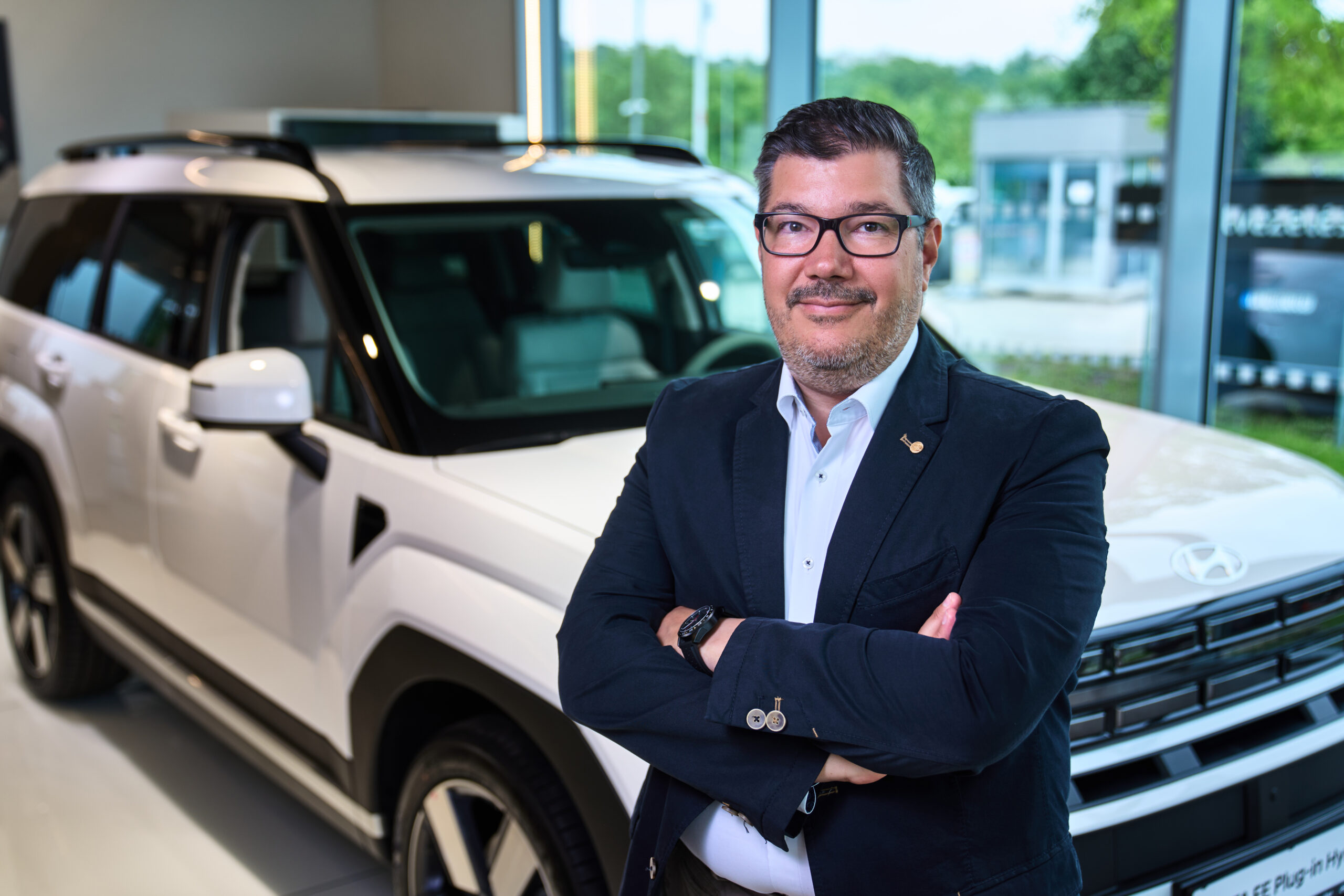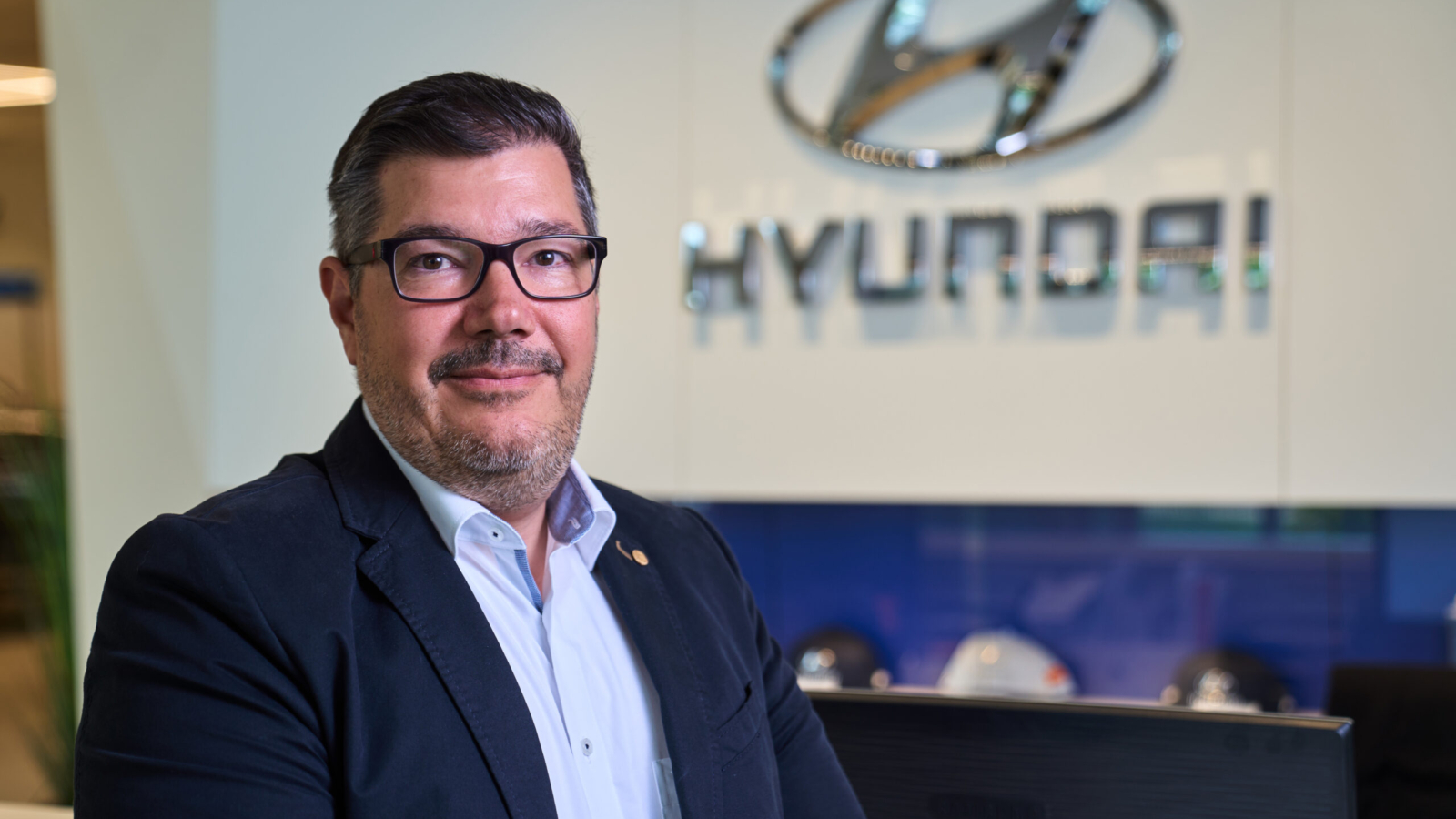A once-in-a-lifetime opportunity presented itself in 2006, and he decided to take it. Now, nearly two decades later, the excitement and the promise still live on. We talk to Mr. Pál Kovács, Managing Director of Hyundai Holding Hungary Kft. and the Hungarian retail operation.
Today there is a swarm of new brands emerging in the automotive world. Twenty years ago, however, it was a very different landscape. By then, traditional carmakers had established themselves in Central and Eastern Europe. There was little desire and even less room for professionals to move about within the industry. Upsetting this calm was a relatively less known brand that decided to take Europe by storm – and presented a rare chance for specialists, among them Pál Kovács, who joined the fledging distributorship as fleet sales manager.
What convinced you to make the move to Hyundai?
It was a unique challenge to be part of creating something from scratch. It was a less known brand with a relatively short history, but there was already word of Hyundai building a factory in Europe, and tailoring a brand new model for the market. That was enough persuasion for me to take this chance. We started out as an NSC, but were transferred to the AutoBinck network within a year or so. It was the sensible decision, with the Hyundai factories taking shape in the Czech Republic and Slovakia. Hungary joined the AutoBinck family in 2007, together with Slovenia. It was a peaceful, smooth transition.
What were the ups and downs of the transition?
As an independent distributor we enjoyed a great degree of freedom in shaping our strategies, as long as the targets were met. This may have been intimidating for some, but I enjoyed it immensely. On the other hand, NSC’s get more support from the manufacturer, but it was a matter of finding the right balance.
In 2007 we started out as a small organisation with maybe a dozen people, but a huge task, so each of us juggles several roles. I became the sales director but I was also working on marketing and logistics. That gave me a good overview of the tasks within the company. In 2015 I became brand manager for Hyundai, and then managing director for the entire Hungarian operation in 2017.
The early years, between 2007 and 2010 were decisive. Many of the people who joined us in that period are still with us – some arrived as trainees, straight from the university, and are now in a management position. It is not just about loyalty, we have tried to build a corporate culture that is both friendly and performance-minded – people have a chance to improve and develop, and they can move up the ranks based on merit, not time spent at the company.
Hyundai started out as a promising young brand. When did you realise it has grown beyond that?
The 2007 introduction of the i30 was a watershed moment, but we made it one. We put a lot of effort into introducing it, we gave it all the support we could. No wonder it is still selling well. While there is continuous development in the car industry, Hyundai has always seemed to progress faster, so we were catching up with other, more established brands fast. The more cars on the road, the better recognition we had, and because the quality and reliability was there, we developed a loyal customer base.
Are Hungarian customers different in terms of needs and wants than others?
I’d rather say every model has a very well defined customer profile, but then we have a wide model range, so we do reach most target groups. When it comes to regional and national differences, it is probably more in terms of specifications and powertrain choices. Hyundai has put itself in the fortunate position of having a very wide powertrain offering.
Another thing is what has been called the chess board strategy. Some brands have a very strict uniform design language. Our models work like chess pieces – all look different, and serve different purposes, yet work together for a unified goal. I believe this has worked in our favour.
Looking back, is there anything you would do differently?
I don’t think so. We have been following a very conscious path, working towards long term goals, such as strengthening the brand. This may be one of our biggest strength. We are not swayed by promises of short term gains; we are willing to make minor sacrifices to achieve our objectives. There are plenty of new challenges and new directions coming down the pipeline, so I think we are continually motivated to stay.
What is the biggest challenge for the future?
It has to be electrification. Hyundai was a pioneer in the field, and many early adopters approached us. They were knowledgeable in the technology. Now, however, the customer profile for EV’s has changed completely. People need to be educated in all aspects of electromobility, and that is a huge challenge for us. We have to improve the quality of our dealer network, they need to be prepared to answer every question, to give professional answers but also a sense of hospitality. I personally believe major step changes have to come from within, otherwise they will just cause frustration. Customers must want to shift to EV’s and we have to support this transition. We cannot force it.
You seem to enjoy work, but what does Pál Kovács do beyond business hours?
I live a very energy intensive life. I prefer to make an active use of my free time. We go to the theatre, the cinema even on weekdays, we love sailing. Our two children are now grown, so our relationship if no longer that of father and sons, we are more like partners in activities. It is working out great, I think.
Part of this, though, obviously comes from the company, from having a great atmosphere. AutoBinck in fact is very supportive of the individual development of its employees – it is, after all, a family business. They understand the need for fulfilment, so if someone has a personal goal they help you fit that into your schedule. I, for instance, have just completed an MBA in Marketing. It is not something that makes me better immediately at my job – but the sense of achievement it has given me certainly does.

